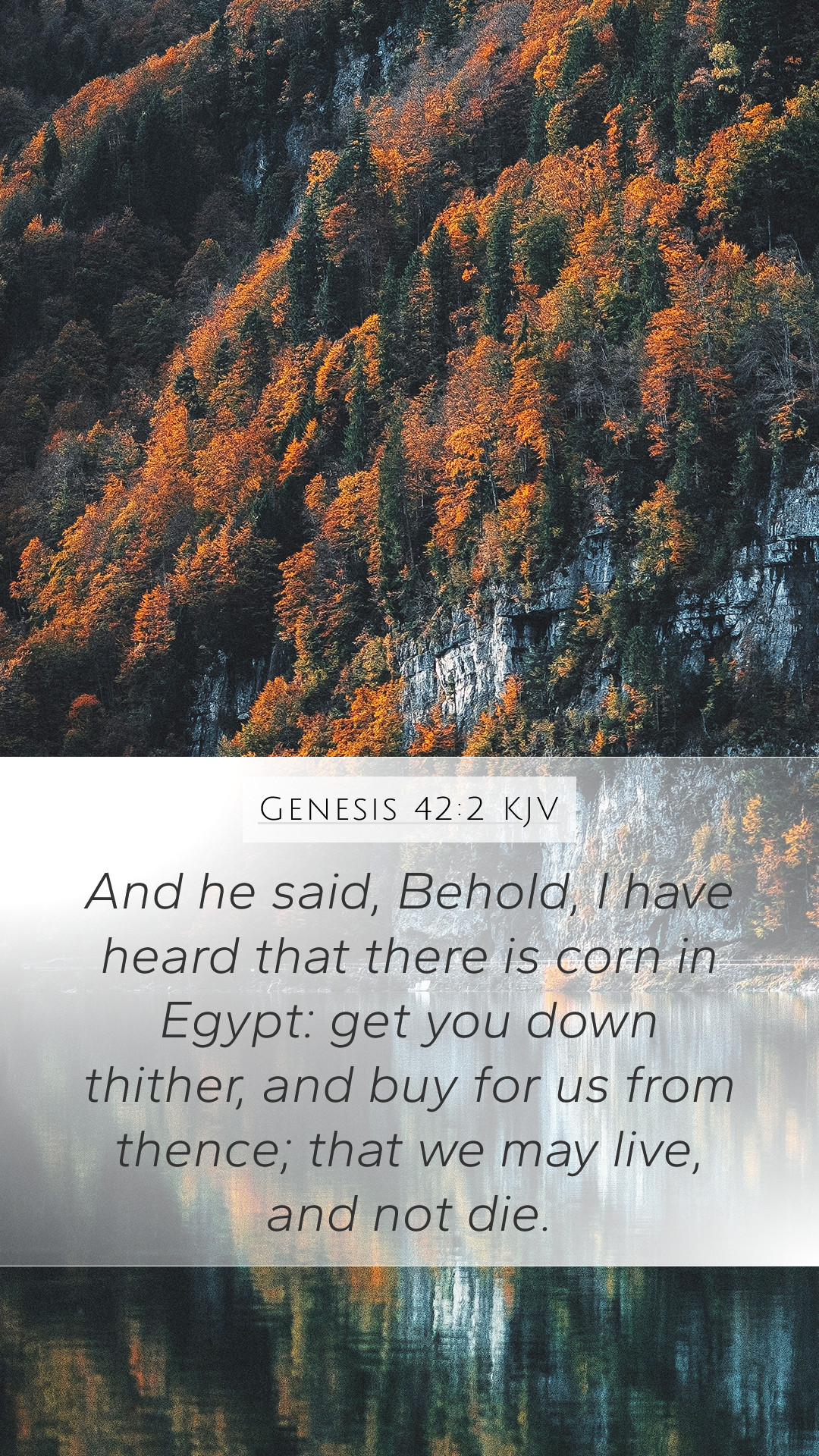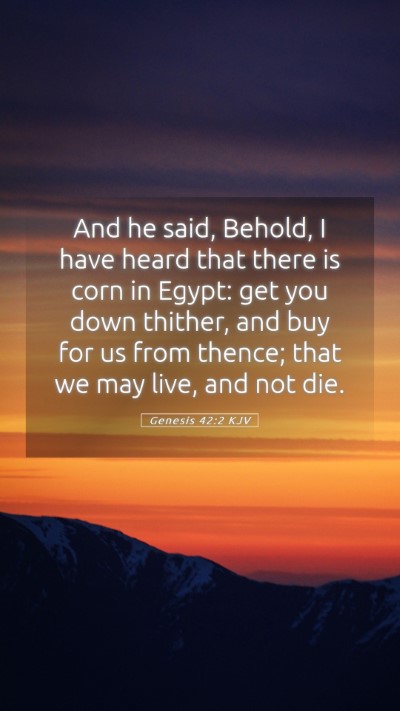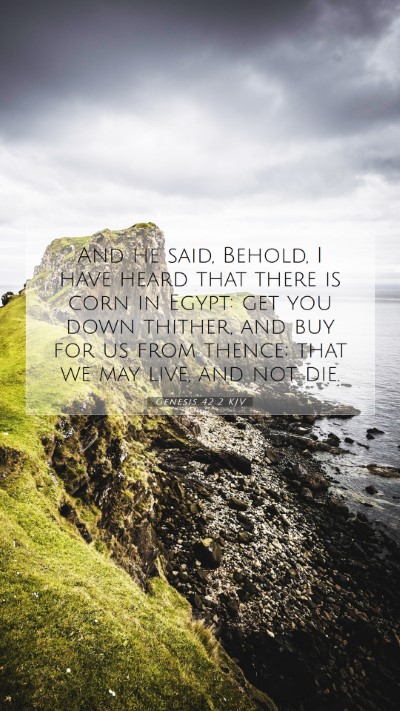Bible Verse Meaning: Genesis 42:2
Genesis 42:2 states: "And he said, Behold, I have heard that there is corn in Egypt: get you down thither, and buy for us from thence; that we may live, and not die."
Understanding Genesis 42:2
This verse highlights a critical moment in the narrative of Joseph and his brothers. Jacob’s family finds themselves in dire need due to a famine impacting the surrounding lands. Through a synthesis of insights from public domain commentaries, we gain a deeper understanding of its implications.
Contextual Significance
The context of Genesis 42 is rooted in a severe famine affecting Canaan. Jacob’s instruction to his sons to go to Egypt for corn reflects both desperation and hope. This act is significant as it sets the stage for a reunion with Joseph, who was sold into slavery years prior.
Bible Verse Commentary Insights
-
Matthew Henry: In his commentary, Henry emphasizes the providence of God in sending Joseph ahead to prepare for the famine. Jacob’s acknowledgment of the food available in Egypt indicates a trust in God's provision, even amid despair.
-
Albert Barnes: Barnes points out that Jacob’s insistence to his sons to obtain corn demonstrates a father’s instinct to provide for his family. It also foreshadows the eventual revelation of Joseph's identity and the fulfillment of God’s purposes through adversity.
-
Adam Clarke: Clarke elaborates on the urgency of the situation, describing how famine leads to desperation. He underscores that this journey to Egypt symbolizes reliance on God, as even in dire circumstances, help is inevitably found.
Interpretative Themes
In exploring the meaning of Genesis 42:2, several key themes emerge:
- Divine Providence: The verse subtly implies God's sovereignty, directing circumstances toward a broader plan involving redemption.
- Human Dependence: Jacob’s directive to seek sustenance highlights humanity's reliance on divine provision and the communal aspect of survival.
- Restoration and Reunion: The call to Egypt foreshadows not just physical sustenance but also the eventual restoration of familial relationships fractured by sin.
Application and Relevance
The insights derived from Genesis 42:2 can be applied to various facets of life:
-
Bible Study Insights: This verse motivates study groups to reflect on how God’s provision manifests in our lives today, often in unexpected ways.
-
Understanding Scripture: Believers can draw parallels between the famine in Canaan and spiritual hungers faced in contemporary life, reaffirming reliance on God for nourishment—both physical and spiritual.
-
Deepening Trust in God: Just as Jacob trusted in the availability of corn in Egypt, so should modern believers place their faith in God’s ability to provide amidst life's challenges.
Cross References
- Genesis 37:28: The brothers' initial betrayal of Joseph sets the stage for their later need for his help.
- Genesis 41:30-31: Joseph's interpretation of Pharaoh's dreams highlights the severity of the upcoming famine.
- Genesis 45:6: Joseph reveals himself to his brothers, culminating the narrative of struggle and resolution.
Conclusion
Genesis 42:2 conveys profound implications about faith, provision, and family dynamics in times of hardship. As believers engage in Bible study, this verse serves as a reminder of God's overarching plan and the importance of trusting in His provision. In-depth analysis of Scripture fosters a deeper understanding and invites personal application, encouraging a richer relationship with God through His Word.


